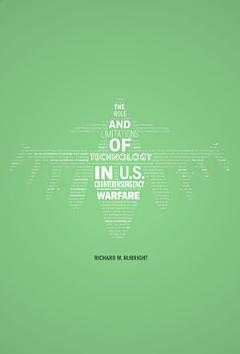Although the United States plays a leading role in the development of technology, particularly that used by militaries around the world, the U.S. military nonetheless continues to find itself struggling against lower-tech foes that conduct warfare on a different scale. Emerging technology is indeed available and is regularly employed in American counterinsurgency efforts; however, since it is also constantly in flux, strategies for its use must continually evolve to ensure that available resources are put to best use against disparate enemies.
Counterinsurgency operations are inherently political conflicts, and in The Role and Limitations of Technology in U.S. Counterinsurgency Warfare, Richard W. Rubright addresses the limits and constraints of technology in enhancing American military capability. Analyzing the confines and self-imposed restrictions on the use of technology as well as current military doctrine, he develops a new rubric for guiding the military in modern warfare.
Drawing on textual analysis, personal interviews with international military professionals, and firsthand experience on the ground in Iraq, this book is the first to address the role of technology in counterinsurgency operations within operational, tactical, and strategic contexts.

